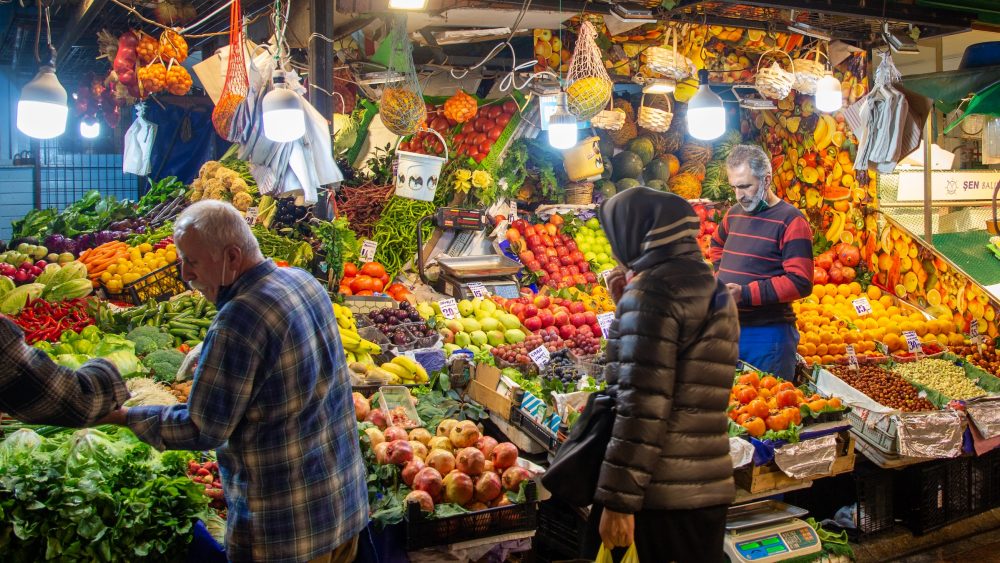Inflation is all over the news. Endless debate about whether it is going up or going down, if it’s in or out of control, and what can be done to change it. There seems to be no doubt that it is important to all of our lives, but remarkably few questions are ever asked about what is being inflated, what causes it and what in turn it is causing. Even some of our most respected media outlets are failing to call out the economic choices behind our current woes.
Here at CTP we are keen on myth-busting in the world of economics. It is something that influences us all yet is understood by so few – and at its heart it is pretty simple, or at least it should be!
In principle, we talk about inflation rates in terms of the growth in the cost of the things we buy. That a pint of milk costs more this year than last is a symptom of inflation – literally prices being inflated (like a balloon). This simple idea gives rise to headlines like the one earlier this month in the Guardian declaring ‘UK inflation falls sharply to 6.8% as cost of living pressures ease’. This gives a very false impression. Inflation of 6.8% still means costs are going up – they are just going up LESS fast than they were last month, when inflation was over 7%. If you pollute a river with 10% more sewage every month, then reduce that to 6% more sewage every month, the river will still be more polluted each month. Slower inflation is still inflation – it is still rising costs. It means the cost of living pressures will rise slightly slower but they’re still rising.
And, perhaps more importantly, there is no discussion about what is actually being inflated. We are led to believe that price rises are all due to entirely unavoidable consequences of rising costs – of raw materials, of labour, of energy etc. Economics is viewed as almost a force of nature, completely beyond the control of human agency. Hence culture wars are ignited about the costs to us all of even below-inflation rises in wages. But in reality most of these rises are due to unimaginable rises in profits for the owners of the companies. Farmers aren’t charging more, but supermarkets profits are booming. The oil in the ground or the sun in the sky are no more costly but energy companies are breaking all-time profit records. Manufacturing workers aren’t getting any richer but the multinational companies that own the factories are producing new billionaires by the week.
‘The cost of living crisis is a cost of greed crisis’
So we need to be much clearer that what is being inflated in the most part here is profit. The cost of living crisis is a cost of greed crisis and as long as we have an economic system that puts the growth of profit and wealth as the ultimate goal of society, inflation will be a benefit to those in control of that profit and wealth.
We urgently need to step back and call out this myth for what it is. Any inflation means the literal ‘cost of living’ is going up for all of us and most of that is currently an inflation of wealth for the wealthy. But if we step back yet further we should and must be asking ourselves – what do we actively WANT to inflate?
What if … we start focusing on inflating the levels of good mental and physical health across our country and our world? Or rapidly inflate the quality of education we provide for every child? How different would our economy look if we aimed to double inflation in the number of affordable homes available for people to live in? What would it take to deliver exponential inflation in the levels of energy we harness from the sun, the sea and the air so that future generations can live in a peaceful and sustainable way?
Recent statistics show us going in entirely the wrong direction. There are across the board rises in things that make profits and deflation in things that don’t – like a focus on growth in care home beds but not staff to service them, rises in new phone systems for GP surgeries but no GPs to man them. The focus of our policy and investment is in growing wealth, not the things that we KNOW produce wellbeing but minimal profit. There is overwhelming evidence that access to cheap local swimming facilities brings significant benefits for health and inequality yet local swimming pools have been closing at an alarming rate because there is little wealth to be made in this low-equipment activity. Similarly local arts and cultural spaces have lost between 30% and 50% of their funding despite providing solutions to entrenched issues including mental health, community cohesion and trust – they simply don’t make the rich any richer.
This list could go on, but the key message is that not only do we need to challenge the myths around inflation, we need to fundamentally challenge the principles on which we decide what to invest our time, resources and national attention on inflating.
Every one of us, our children, our grandchildren and the natural world urgently needs a shift to a wellbeing economy – one that strives, with every beat of its heart and every hour of its working day, to inflate the wellbeing of people and planet now and into the future.
Liz Zeidler, CEO
If you’d like to know more about how CTP can help transform the local economy for good, get in touch at hello@centreforthrivingplaces.org and sign up for our newsletter here.
Photo by Kamil Kalkan on Unsplash



Comments are closed.